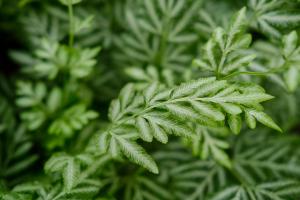Are the Water Plants in Africa?
Africa is home to many different types of water plants, which are well adapted to the region's hot, arid climate. These plants not only provide important habitat for fish and other aquatic life, but also serve as sources of food and medicine for local communities.
Types of Water Plants Found in Africa
There are several types of water plants found in Africa, including:
Papyrus: This tall reed-like plant grows in dense stands along the banks of rivers and lakes, and is a valuable source of fiber for making baskets, paper, and other goods.
Water hyacinth: This floating plant has become a notorious invasive species in many parts of the world, but in Africa it is a common sight in rivers and lakes, where it provides important habitat for fish and other aquatic creatures.
Lotus: The lotus is a beautiful water plant that grows in shallow ponds and marshes, and has long been prized for its ornamental value as well as its medicinal properties.
Water lilies: These delicate, floating flowers are another popular ornamental plant, and are found in many of Africa's freshwater bodies.
The Importance of Water Plants in Africa
Water plants play a crucial role in Africa's ecosystems, helping to filter pollutants from the water, provide oxygen to aquatic creatures, and stabilize shorelines and riverbanks. They also serve as a vital source of food and medicine for many of the region's indigenous communities.
For example, the papyrus plant is not only used for making baskets and paper, but also for building traditional boats and for medicinal purposes. In some parts of Africa, the roots of the lotus plant are eaten as a nutritious food, while the flowers and leaves are used to treat a range of ailments, from diarrhea to cancer.
Challenges Facing Africa's Water Plants
Despite their many benefits, Africa's water plants are facing a number of threats, including pollution, habitat destruction, over-fishing, and the spread of invasive species such as water hyacinth. Climate change is also exacerbating these problems, with rising temperatures and increasingly frequent droughts putting further pressure on already stressed ecosystems.
To address these challenges, conservation groups are working with local communities to develop sustainable management strategies for Africa's freshwater ecosystems, including the development of alternative livelihoods that reduce pressure on natural resources.
Conclusion
In conclusion, water plants are a vital component of Africa's freshwater ecosystems, providing important habitat, food, and medicine for local communities. As the region faces growing environmental challenges, protecting these plants and the ecosystems they support will become ever more important in ensuring the health and well-being of both people and the planet.

 how many times do yo...
how many times do yo... how many planted tre...
how many planted tre... how many pine trees ...
how many pine trees ... how many pecan trees...
how many pecan trees... how many plants comp...
how many plants comp... how many plants can ...
how many plants can ... how many plants and ...
how many plants and ... how many pepper plan...
how many pepper plan...
































